|

Shop and home of Air Paramo
We pin the machine to a rack on the back of the van and it's 5
min drive to the airport area. |
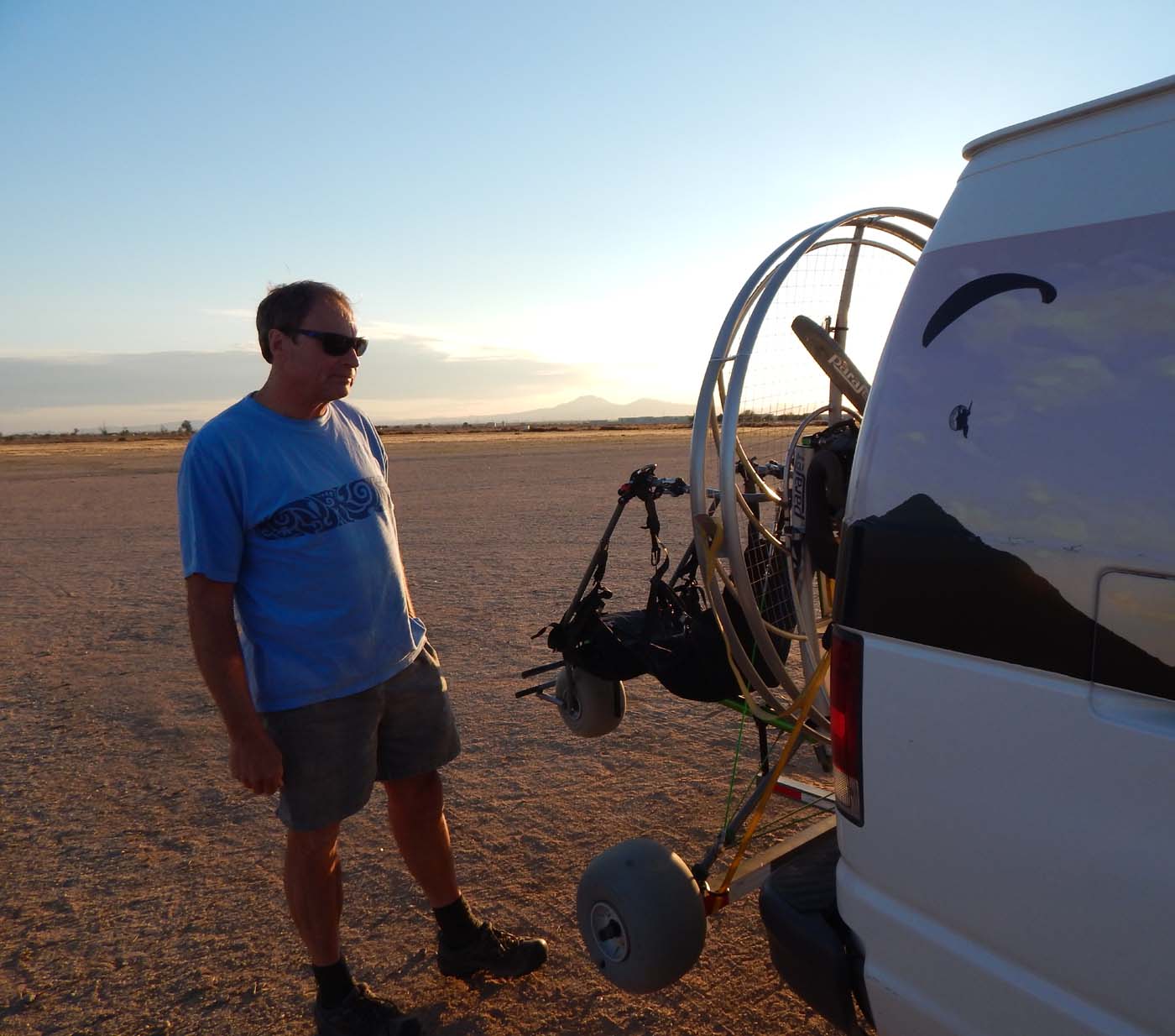
Tell me what you want me to do!
Here's Dave getting ready to assist Pilot Mo with preflight and wing setup.
|
|
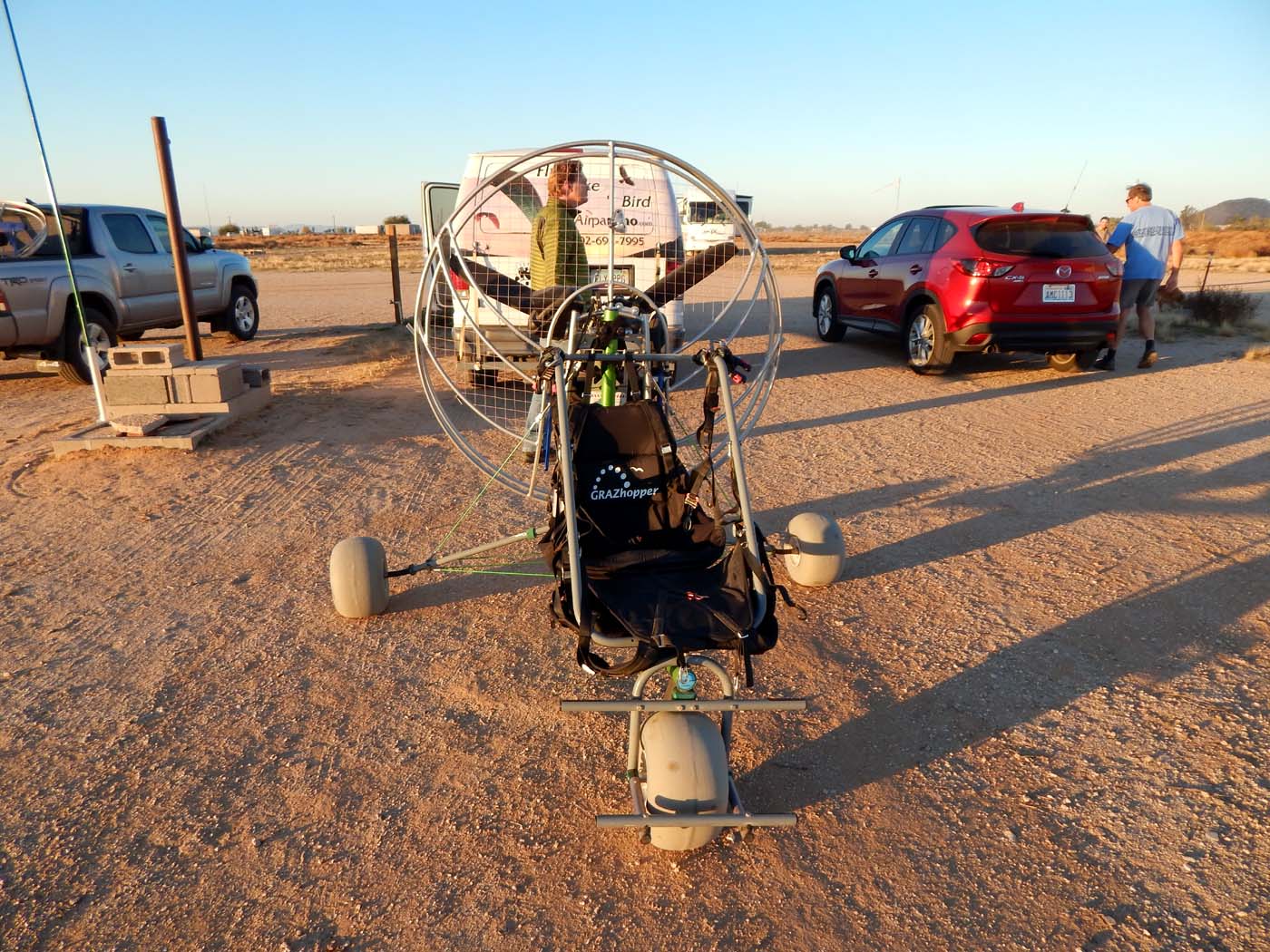
Tricycle Paramotor
We drove to a one acre square gravel pad adjacent to the
Ak-Chin Regional airport
frequented by the enthusiasts of this sport. We met several.
|

T
Here was another guy with a strap-on motor paraglider.
...more pix of this guy
and his flight
|
|

Getting the wing ready to go.
Important check: observe no sticks or twigs fouling the lines..
|

It is nearly sunset.
When inflated, this becomes a perfect shaped wing that forms to
generate a lot of lift from very little wind |
|
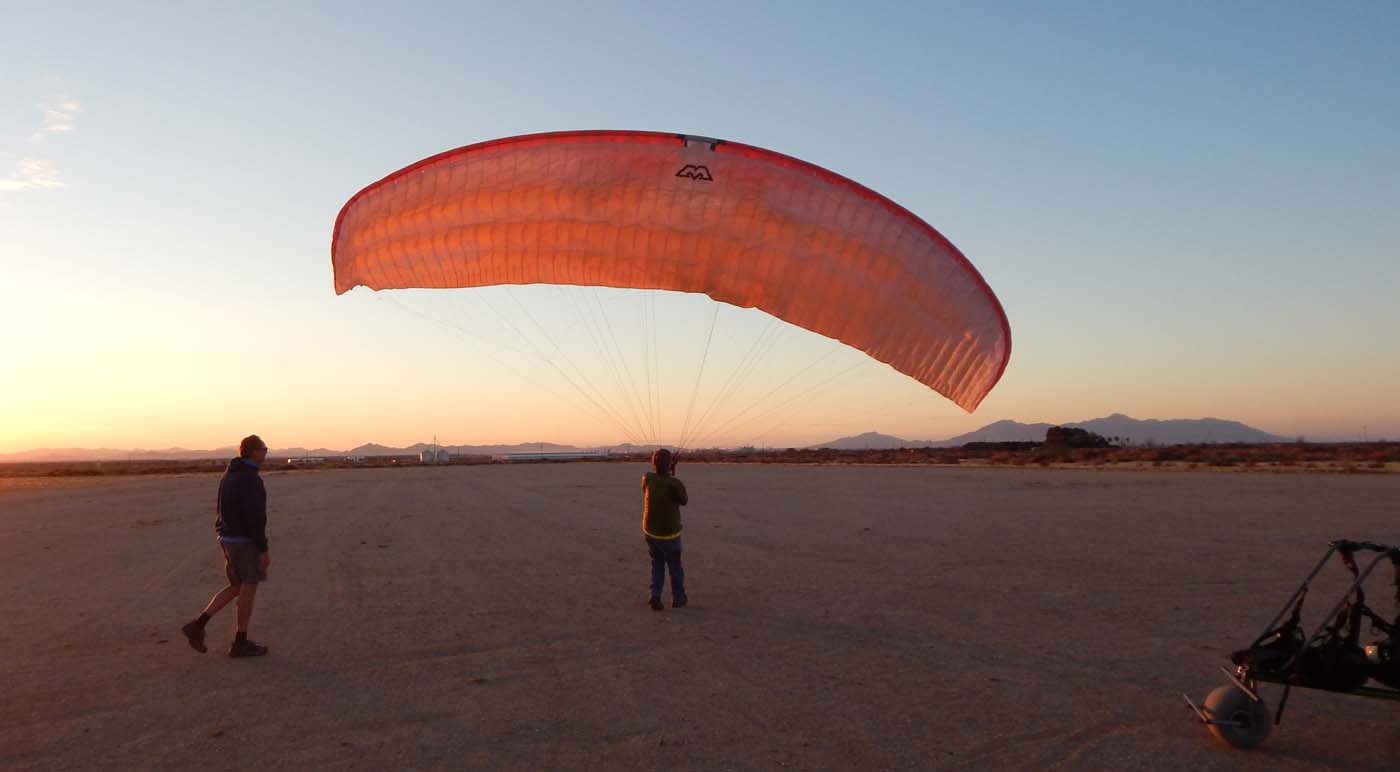
Making sure the wing is free and all shrouds straight. The thing has
two handles that are the pilot controls.
Pull on on left handle, you go left. Pull on the other-- you go
right.. Engine rpm changes pitch.
|
|

Getting everything into position
|

Final alignment of wing and tricycle |
|
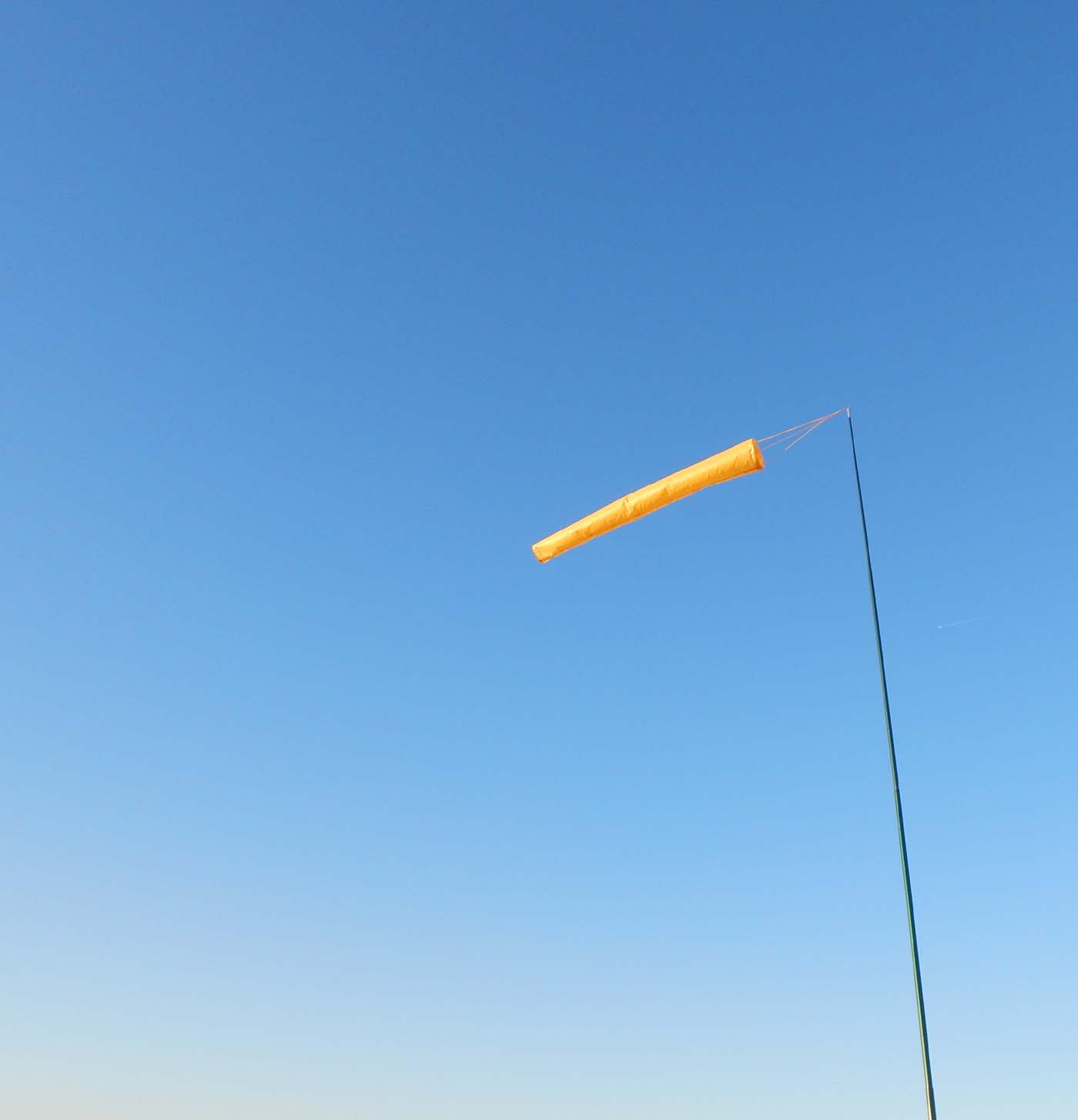
We keep an eye on the windsock.
Nothing above 14 mph
One key to flying these things is to be aware wind speed/direction
at take off and during the
flight. Pilots especially learn the behavior of wind flowing around
mountains and hills.
This evening we saw some 14mph gusts which would make it a
no-fly. When the sun got lower, the wind settled down and it was a
Go Fly!
Powered paragliders usually fly between 15 and
45 mph at altitudes from 'foot-dragging in the grass' up to
18,000 ft although most flying is done under 500 ft AGL. Due to the
paramotor's slow forward speed, it must not be flown in conditions
of high wind, turbulence, or intense thermal activity.
|

All shroud lines are laid out and the wing
connected to the paramotor. Powered paragliding, also known as paramotoring,
is a form of ultra light aviation where s a motor is mounted on a
lightweight tricycle frame. The motor provides enough thrust to take
off using an adapted paraglider or paramotor wing.
In many countries, including the United States, powered paragliding
is minimally regulated and requires no license. The ability to fly
both low and slow safely, the 'open' feel, the minimal equipment and
maintenance costs, and the portability are claimed to be this type
of flying's greatest merits.
|
|

Preflight
Check all lines, gas, tighten prop bolts and briefly start and
run engine.
|
|

Safety briefing and intercom check
|

Buckle in and final check.
Mo's golden retriever, Rose wanted to go with us.
He has a setup where the dog straps in the passenger seat and the
dog loves it, hates it when Mo flies without him!
Note the two RV's in the background. Both have motor paragliders in trailers
and the owners just park there in the winter for fun in the sun. A guy in a
house around the corner has one and takes off from his driveway. We
circled his house and he was jumping up and down.
There's a whole cult of paramotor paraglider enthusiasts in the
Maricopa area.
|
|

Increase engine RPM, wing inflates and we begin to move forward
chased by Mo's barking Golden Retriever.
|
|
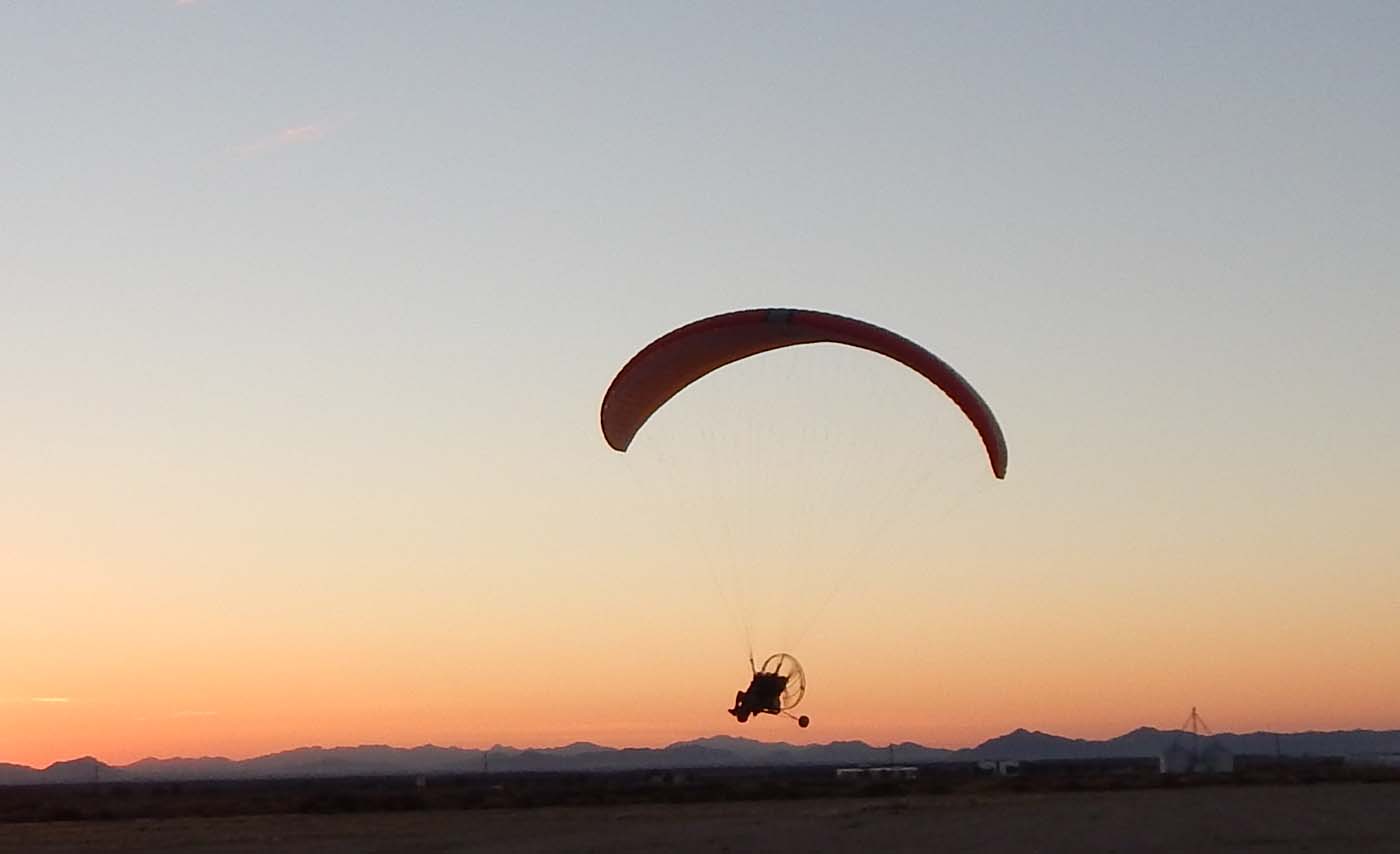
Off and climbing into the sunset
View Movie of flyby
|
|

We circle around and do a touch and go. View a movie of the
takeoff
|
|
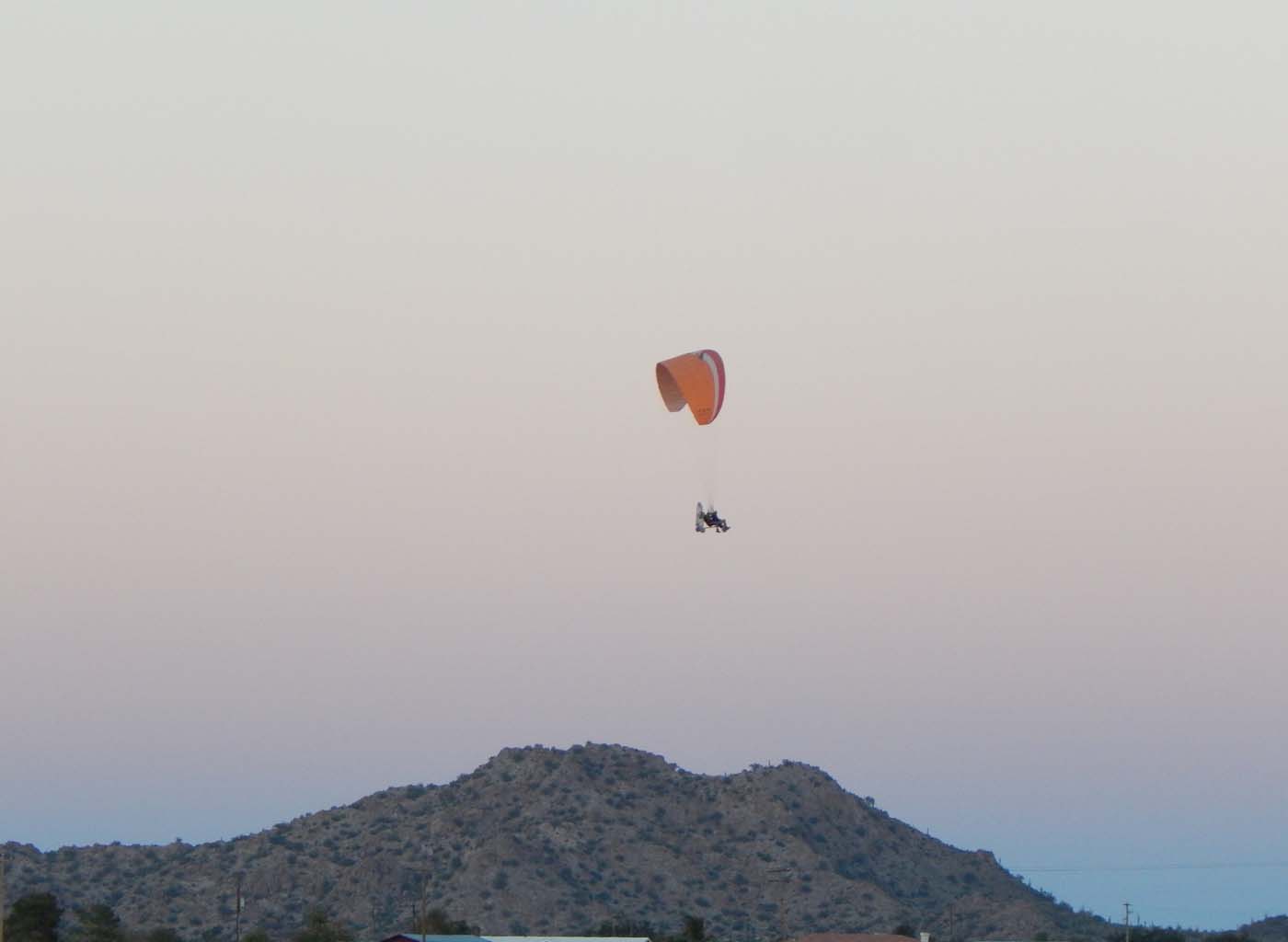
We head off the to the NE and circle this mountain a few times. We
took advantage of the wind blowing over the top of the mountain to
gain more altitude. The flight was smooth and I felt safe suspended
below the huge inflated wing.
We observed some large raptors were also having fun using the mountain air
currents right next to us. They only offered a passing glance at the
giant bird next to them.
|
|

Sunset landing. Great fun!
|
|
Winter/Maricopa AZ
2014-2015
Trips Index
AirParamo.com
One for sale
© COPYRIGHT - 2015
Dave Ingebright
1/11/15
|
|